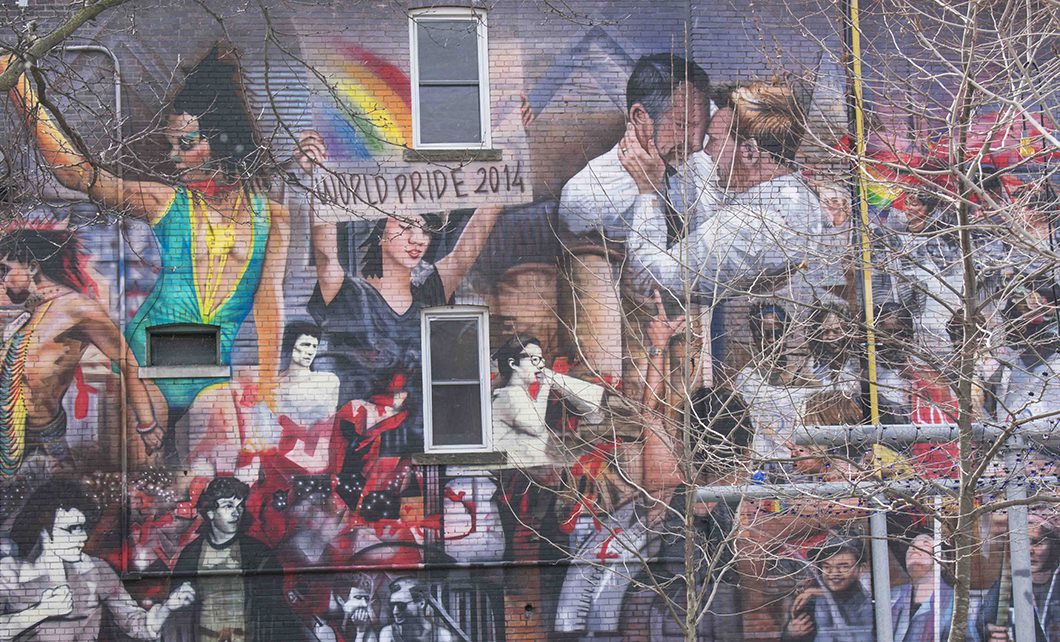The mayor of Toronto is seeking a third-party review of how police handle missing-persons cases to ensure “absolutely no questions are left unanswered.”
John Tory is also requesting a provincial inquiry.
“Maintaining the trust of all our communities is paramount,” Tory wrote in a news release. “I want to thank Toronto’s LGBTQ community for their leadership, strength and collaboration through this difficult time.”
The request is a result of the police investigation of alleged serial killer Bruce McArthur, who faces six counts of first-degree murder.
Det.-Sgt. Hank Idsinga, lead detective on the McArthur case, revealed that police have also started a separate internal investigation related to inappropriate police conduct.
About that internal review, Tory wrote, “I led the board… to ensure that the results of the already underway internal review of these matters is made public.”
The Toronto Star reported that police questioned McArthur in 2016 about allegations of physical abuse. Police released McArthur.

Det.-Sgt. Hank Idsinga is the lead investigator in the Bruce McArthur case. During a press conference on March 5, where police released the photo of a dead unidentified man linked to the McArthur case, he called the case “tiring” and “very disturbing.” (Bobby Hristova/Toronto Observer)
Idsinga and his team were unaware of the encounter.
“The actions of some officers… potentially did not do what they were supposed to have done, according to our policies and our procedures,” Idsinga told the Star.
Detectives have taken rare steps to advance the case, releasing an image of a dead, unidentified man possibly related to the murders.
While police review their own work, Tory is not the only one who wants more eyes on the case — and he is not the first to ask.
We’ve never had anyone within our community who was killing us and that was the scary part… it hit a little too close to home.
—Haran Vijayanathan
The LGBTQ community started pleading for police to pay attention after the first two disappearances linked to McArthur in 2010.
Three of the missing men were racialized victims of Middle Eastern or South Asian origin, two of whom — Skandaraj Navaratnam, 40, and Majeed Kayhan, 59 — were murdered, police say.
Haran Vijayanathan, executive director of the Alliance for South Asian Aids Prevention (ASAAP), was one of the first to request a third-party review and internal review on Jan. 28.
“If we just left it with the internal investigation, no change would have come out of it,” he said. “An independent external review will say, ‘This is what actually happened.'”

Haran Vijayanathan, executive director of the Alliance for South Asian Aids Prevention, said support from the city and police to conduct independent reviews is “a really good step forward.” (Bobby Hristova/Toronto Observer)
Police and city officials began meeting with Vijayanathan and his representative, Shakir Rahim, a law student and ASAAP board member, in early February.
City officials thought the relationship between law enforcement and LGBTQ folks was improving, but the delayed police response damaged any previous trust.
“The community has changed, the laws have changed, and systems have changed, however, the way police operate hasn’t changed,” Vijayanathan said. “Being open and honest right now and listening to what people have to say… is the best way to building trust within the community that’s lost it already.”
ASAAP suggests that a variety of community leaders should sit on the external review board and dialogues should be held with police to help them understand the issues.
The ultimate goal is to create Toronto’s first missing-persons bureau, a database that could change the entire system. The bureau would maintain readily accessible files on all missing persons, speeding up things such as DNA testing, even if a case went cold.
“We can’t continue this way. It’s a broken system, people are going missing regularly and they’re not being found,” Vijayanathan said. “Whatever system change that we make… has a potential impact on not just the LGBTQ community, but also every single community across this province and this city.”
Despite this, Vijayanathan says a lack of urgency from police is nothing new.
Our lives just don’t seem to matter.
—Tim McCaskell
Tim McCaskell, a prominent Toronto LGBTQ activist since 1974, questions Tory’s statement, asking “Why not a month ago? Two months ago?”
McCaskell, who has been openly critical of law enforcement since his first days as an activist, says the case is a “huge black eye” for police and the city.
Moving forward, he says authorities should “rethink policing.”
“Forty years of fights to try to get proper, independent civilian oversight of the police and dealing with complaints and it’s always suspect,” he said. “They need to relook at organizational structure… so if something like this starts to happen, they understand what’s going on, they hear what people are saying, and can begin to take seriously community concerns.”
Vijayanathan is optimistic about the third-party review.
“Everything happened really quickly, which we’re really pleased with… I think the mayor is willing to have that conversation and so is the police,” he said. “It’s going to be a never-ending story for the next few years… we’ll see where it takes us.”
The board will meet on March 22.

